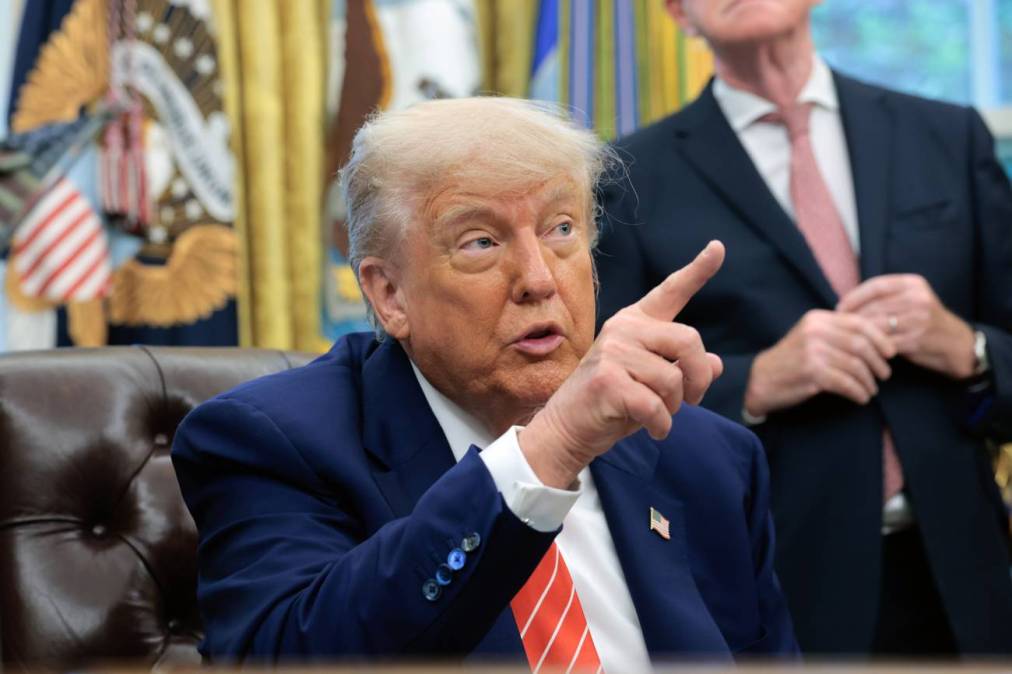Trump vows to end Biden’s ‘unconstitutional’ Digital Equity Act

In a message shared on Truth Social, President Donald Trump on Thursday vowed to end the “unconstitutional” Digital Equity Act, which provides states with funding through a set of programs intended to close the digital divide. The act was enabled by the $1.2 trillion Infrastructure Investment and Jobs Act of 2021, under the watch of former President Joe Biden.
The Digital Equity Act, which Trump described as a “giveaway” based on race, funded digital skills training, workforce readiness, device access and technical support for residents at the state and local level, through three grant programs totaling $2.75 billion. These are the State Digital Equity Planning Grant Program, the State Digital Equity Capacity Grant Program and the Digital Equity Competitive Grant Program.
Trump said in his message Thursday that Commerce Secretary Howard Lutnick agreed with defunding the act.
Lutnick, meanwhile, is also expected to reform to the $42.45 billion Broadband Equity, Access, and Deployment program. Lutnick said he would eliminate “pointless requirements” and “woke mandates” in BEAD, which was also funded through the infrastructure law.
“I have spoken with my wonderful Secretary of Commerce, Howard Lutnick, and we agree that the Biden/Harris so-called ‘Digital Equity Act’ is totally UNCONSTITUTIONAL,” Trump wrote on Truth Social Thursday afternoon. “No more woke handouts based on race! The Digital Equity Program is a RACIST and ILLEGAL $2.5 BILLION DOLLAR giveaway. I am ending this IMMEDIATELY, and saving Taxpayers BILLIONS OF DOLLARS!”
Trump’s announcement comes after months of speculation regarding the future federal funds for both state broadband projects, such as BEAD, and monies carved out for states to close the digital divide as part of Biden’s “Internet for All” initiative. Speculation about the programs was fueled by the Trump administration’s scything of federal programs and departments during his first three months in office.
The Free Press in April reported that federal funding through the Digital Equity Act, among other programs, had been frozen as part of an investigation into racial discrimination by the federal government. StateScoop was unable to confirm the freeze at the time, and officials from Connecticut and North Carolina said they had not heard from the National Telecommunications and Information Administration about a freeze.
But at least two states — California and Texas — in recent months froze their digital equity funds ahead of expected changes to the programs.
Despite Trump’s threat to end the programs, it should still take an act of Congress to overturn the Digital Equity Act. In a joint statement by the Revati Prasad, executive director of the Benton Institute for Broadband & Society, and Drew Garner, the institute’s director of policy engagement, they noted the act’s constitutionality, and said the aims of the Digital Equity Act are “simple and uncontroversial.”
“In our system of checks and balances, Congress makes the law, the Administration implements the law, and the courts interpret the law,” their statement reads. “As states have partnered with the U.S. Department of Commerce to ensure everyone in the U.S. can get and stay online, there has not been a single legal challenge to the Digital Equity Act. Neither President Donald Trump nor Commerce Secretary Howard Lutnick is empowered to declare a law unconstitutional. That is the sole purview of the courts. The Administration’s responsibility is to implement the law as written.”
Prem Trivedi, policy director at the Open Technology Institute, said this action will cause “millions” to suffer, and that it will undercut the success of the BEAD program.
“Without DEA [Digital Equity Act], BEAD will leave undone the hardest work of closing the digital divide and condemn many Americans to life on the wrong side of the divide,” Trivedi said. “Our country needs the Digital Equity Act to achieve the benefits of making America a fully digitally-connected nation. These benefits include increased government efficiency, economic benefits, workforce development, improved health outcomes, and enhanced national competitiveness.”
Colin Wood contributed reporting.






